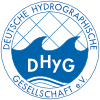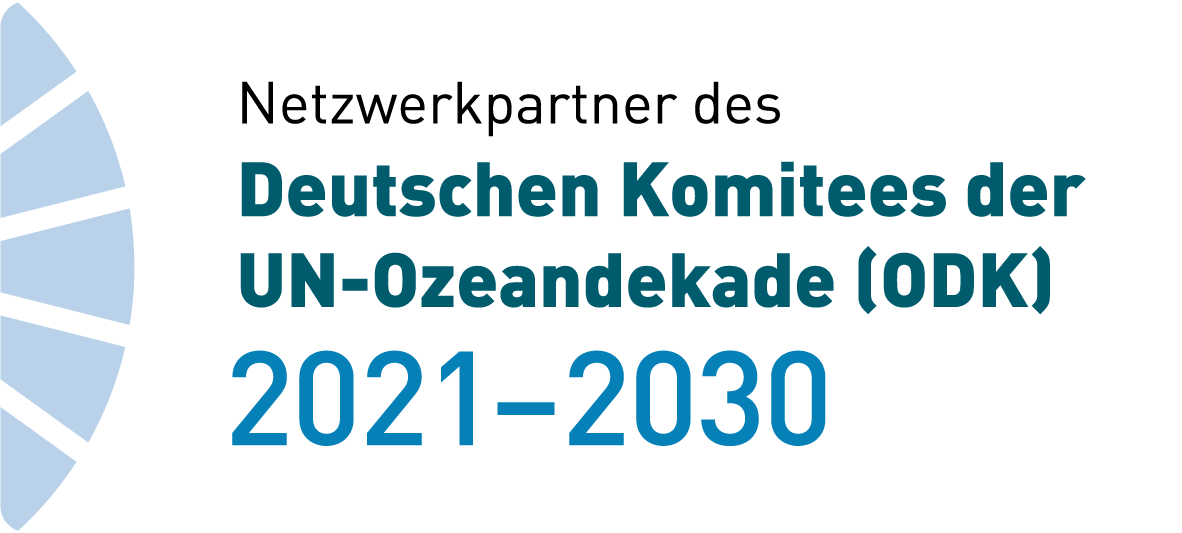HN Ausgaben wählen
- HN 132 (9)
- HN 131 (17)
- HN 130 (10)
- HN 129 (8)
- HN 128 (10)
- HN 127 (6)
- HN 126 (10)
- HN 125 (11)
- HN 124 (8)
- HN 123 (10)
- HN 122 (9)
- HN 121 (10)
- HN 120 (7)
- HN 119 (10)
- HN 118 (7)
- HN 117 (10)
- HN 116 (14)
- HN 115 (10)
- HN 114 (6)
- HN 113 (10)
- HN 112 (7)
- HN 111 (9)
- HN 110 (9)
- HN 109 (11)
- HN 108 (8)
- HN 107 (9)
- HN 106 (7)
- HN 105 (14)
- HN 104 (6)
- HN 103 (11)
- HN 102 (8)
- HN 101 (9)
- HN 100 (13)
- HN 097 (1)
Building coastal digital twins in the UN Ocean Decade
Coastal zones are among the most dynamic, valuable and vulnerable ecosystems on earth. The challenge is to highlight the importance of these coastal zones and to innovate and implement strategies for their sustainable monitoring and management. Earth observation technologies offer a powerful means of continuously mapping coastal zones. Earth observation elements also contribute to the creation of a coastal digital twin. In the long term, digital twins of coastal regions will become an increasingly indispensable tool for coastal monitoring and modelling and response planning.
coastal zone | monitoring | earth observation | Copernicus | digital twin | COASTS
Die Küstengebiete gehören zu den dynamischsten, wertvollsten und empfindlichsten Ökosystemen der Erde. Die Herausforderung besteht darin, die Bedeutung dieser Küstenzonen hervorzuheben sowie Strategien für ihre nachhaltige Überwachung und Bewirtschaftung zu entwickeln und umzusetzen. Erdbeobachtungstechnologien bieten ein leistungsfähiges Mittel zur kontinuierlichen Erfassung der Küstenzonen. Außerdem tragen Erdbeobachtungselemente zur Erstellung eines digitalen Zwillings der Küstengebiete bei. Auf Dauer werden digitale Zwillinge von Küstenregionen zu einem zunehmend unverzichtbaren Instrument für die Küstenüberwachung und -modellierung und die Reaktionsplanung.
Küstenzone | Monitoring | Erdbeobachtung | Copernicus | digitaler Zwilling | COASTS
- Ausgabe: HN 127, Seite 26–29
- DOI: 10.23784/HN127-05
- Autor/en: Knut Hartmann, Mona Reithmeier, Magnus Wettle
Nutzung künstlicher Intelligenz zur Aufspürung von Geisternetzen in Küstengewässern
Fischernetze, die frei im Gewässer ›umhergeistern‹, sind ein Problem für die Umwelt. Mit tiefgeschleppten Seitensichtsonargeräten werden die sogenannten Geister¬netze gesucht. Auf den Bilddaten sind die Geisternetze jedoch kaum zu erkennen, dargestellt werden lediglich dünne Linien, die die Lage der Bleileinen wiedergeben, mit denen die Fischernetze beschwert werden; die eigentlich Netzstruktur bleibt unsichtbar. Bisher haben Menschen die Bilddaten ausgewertet. Viel schneller geht es mit einem automatisierten Ansatz aus der Computer Vision, bei dem mittels computergestützter Datenanalyse Geisternetze in den Bilddaten identifiziert werden können.
Geisternetze | Mikroplastik | Computer Vision | R-CNN | Trainingsdatensatz
Fishing nets that 'ghost' freely in the water are a problem for the environment. The so-called ghost nets are searched for using deep-towed side-scan sonar devices. However, the ghost nets are barely recognisable on the image data; only thin lines are shown that reflect the position of the lead lines with which the fishing nets are weighted; the actual net structure remains invisible. Until now, people have analysed the image data. An automated approach from Computer Vision is much faster, using computer-aided data analysis to identify ghost nets in the image data.
ghost nets | microplastics | Computer Vision | R-CNN | training data set
- Ausgabe: HN 127, Seite 20–25
- DOI: 10.23784/HN127-04
- Autor/en: Mia Schumacher, Markus Götz, Gabriele Dederer, Mareen Lee
Seabed 2030: The seabed data we need for the ocean we want
The United Nations Decade of Ocean Science for Sustainable Development, 2021 to 2030 (Ocean Decade) calls for global efforts to generate »the science we need for the ocean we want«. Here, we demonstrate the role of The Nippon Foundation-GEBCO Seabed 2030 Project (Seabed 2030), a flagship Ocean Decade Action focusing on inspiring the mapping of the global seabed, in generating the knowledge needed to implement meaningful actions that reduce harmful human pressures on the ocean. We begin with a brief overview of Seabed 2030. We then provide examples of how bathymetric data and Seabed 2030 support the Ocean Decade Outcomes, particularly those in relation to the Outcomes relating to an accessible and inspiring ocean.
seabed mapping | bathymetry | Open Science | Ocean Decade | Seabed 2030
Die Dekade der Vereinten Nationen für Ozeanforschung im Dienste der nachhaltigen Entwicklung, 2021 bis 2030 (Ozeandekade), ruft zu globalen Anstrengungen auf, um »die Wissenschaft« zu schaffen, »die wir für den Ozean brauchen, den wir haben wollen«. Wir zeigen die Rolle des Projekts Seabed 2030 der Nippon Foundation und GEBCO, einer Vorzeigeaktion der Ozeandekade, die sich auf die Kartierung des globalen Meeresbodens konzentriert, um das Wissen zu schaffen, das für die Umsetzung sinnvoller Maßnahmen zur Verringerung des schädlichen menschlichen Drucks auf den Ozean erforderlich ist. Wir beginnen mit einem kurzen Überblick über Seabed 2030. Dann geben wir Beispiele dafür, wie bathymetrische Daten und Seabed 2030 die Ergebnisse der Ozeandekade unterstützen, insbesondere in Bezug auf die Ergebnisse, die sich auf einen zugänglichen und inspirierenden Ozean beziehen.
Meeresbodenkartierung | Bathymetrie | Open Science | Ozeandekade | Seabed 2030
- Ausgabe: HN 127, Seite 14–18
- DOI: 10.23784/HN127-03
- Autor/en: Jamie McMichael-Phillips
»Der Ozean ist existenziell für alle als unser Lebenserhaltungssystem auf der Erde«
Dr. Steffen Knodt ist Mitglied im Vorstand des deutschen Ozeandekaden-Komitees. Im Interview berichtet er von den Aktivitäten der Ozeandekade. Dabei unterstreicht er den Beitrag der Hydrographie für die Ozeandekade. Optimistisch bewertet er die Fortschritte bei der Kartierung des Meeresbodens. Bis 2030 sei noch sehr viel möglich. Eindringlich betont er, wie wichtig es ist, das Bewusstsein der Menschen für die Bedeutung der Meere zu wecken. Was wir in diesem Jahrzehnt erreichen, wird sich auf die nächsten hundert Jahre auswirken.
Ozeandekade | SDG 14 | Plastikmüll | Geisternetze | Korallenriffe | Seegraswiesen | Maritime Raumplanung | DITTO | kritische Infrastruktur | Seabed 2030 | GMT
Dr. Steffen Knodt is a member of the board of the German Ocean Decade Committee. In this interview, he reports on the activities of the Ocean Decade. He underlines the contribution of hydrography to the Ocean Decade. He is optimistic about the progress made in mapping the seabed. A lot is still possible by 2030. He strongly emphasises how important it is to raise people’s awareness of the importance of the oceans. What we achieve in this decade will have an impact for the next hundred years.
Ocean Decade | SDG 14 | plastic waste | ghost nets | coral reefs | seagrass meadows | marine spatial planning | DITTO | critical infrastructure | Seabed 2030 | GMT
- Ausgabe: HN 127, Seite 8–13
- DOI: 10.23784/HN127-02
- Autor/en: Steffen Knodt, Lars Schiller
Wir sind nicht niemand
Vor 40 Jahren wurde die Deutsche Hydrographische Gesellschaft e. V. – abgekürzt DHyG – in Hamburg gegründet. Das Jubiläum ist Anlass, am Ort der Gründung zu feiern. Wir drucken Auszüge aus der Festrede, die Thomas Dehling, der Erste Vorsitzende der DHyG, am 19. März 2024 an der HafenCity Universität gehalten hat.
40 years ago, the German Hydrographic Society – in German: Deutsche Hydrographische Gesellschaft, DHyG for short – was founded in Hamburg. The anniversary is an occasion to celebrate at the place, where the organisation was founded. We publish excerpts from the speech given by Thomas Dehling, First Chairman of the DHyG, at HafenCity University on 19 March 2024.
- Ausgabe: HN 127, Seite 6–7
- DOI: 10.23784/HN127-01
- Autor/en: Thomas Dehling


